Fifteen Canadian start-ups will pitch technology-based solutions designed to have a positive impact on the lives of older Canadians during three separate virtual events this season.
Then, finalists will make a concluding pitch and respond to questions in the hopes of receiving $20,000 cash or other in-kind prizes during the livestream events.
Including anything from interactive virtual reality programs to assistive smartphone apps to hardware that adds functionality to traditional wheelchairs, the innovative new lifestyle and wellness products target the large and growing seniors or silver marketplace.
This year’s online competitions are part of the AGE-WELL National Impact Challenge; AGE-WELL (it’s an acronym for Aging Gracefully across Environments using Technology to Support Wellness, Engagement and Long Life) is a network of companies and organizations using technology and related in-person services to support senior citizens and older Canadians as well as their caregivers; it’s been in operation since 2015.
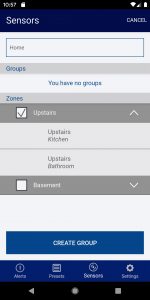
A smartphone app lets users control wireless sensors to track daily living activities.
In the upcoming first round of competition, scheduled for a June 18 livestream, one of the competitors is a Halifax-based tech company called HomeEXCEPT. It has developed a home-based monitoring platform to watch over normal patterns of daily living in private and public spaces.
Using a series of wirelessly connected sensor devices, linked through a machine learning-enabled software program, HomeEXCEPT analyzes activity in real-time and it lets users define their own needs for notification about a certain object or activity. Perhaps the user wants to know if a certain door opens, say between 9 am and 5 pm. Or a user might want to know that something hasn’t moved – like a bottle of medication containing tablets that need to be taken once every four hours.
There are no cameras or listening devices involved; users do not need to share names or other personally-identifying information to use the system.
While this year may be one of the toughest ever for us to remain in a normal state and follow regular routines, AGE WELL is moving forward with its activities thanks to renewed funding from the federal Networks of Centres of Excellence (NCE) program to the end of the fiscal year 2022/23; it will receive nearly $22 million over the renewal period.
“Technology has a significant role to play in supporting older adults and caregivers in the current challenging times related to COVID-19 and in the future,” said Dr. Alex Mihailidis, Scientific Co-Director and CEO of AGE-WELL, Canada’s Technology and Aging Network. “This vital funding from the Government of Canada will allow AGE-WELL to accelerate the delivery of technology-based solutions that support older Canadians and caregivers, and to continue to build a thriving AgeTech sector in Canada.”
Already serving that sector and looking to grow and expand its offering is second-round competitor Braze Mobility.
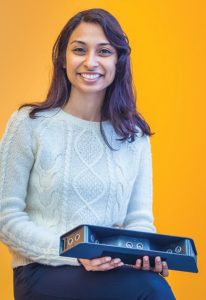
Dr. Pooja Viswanathan, CEO of Braze Mobility startup, developed an add-on wheelchair navigation and safety system
The Toronto-based company develops hardware and software add-ons for traditional wheelchairs, bringing additional mobility and safety awareness to the users.
The company started with a blind spot sensor system for wheelchairs to let users know about physical obstacles in their path; it also triggers multiple alerts if or as needed. Braze is expanding those capabilities with MOANA (Module for Obstacle Avoidance and Navigation Assistance), which it says turns a wheelchair into a smart wheelchair with enhanced navigation and feedback capabilities.
The Braze technology platform is one of more than 100 being reviewed and enhanced by the pitch and development process at AGE-WELL. It partners with some 42 member universities and research centres across Canada and almost 400 industry, government, and non-profit partners to not only get products to market that are practical and useful, but also to ensure that privacy, ethical and regulatory issues are not ignored along the way.
In the third round, a dedicated virtual reality exercise and activity program designed specifically for seniors will be part of the pitch picture.
Virtual Gym allows caregivers to prescribe and monitor individual exercise routines delivered in an individual game-like experience that promotes physical and mental activity.
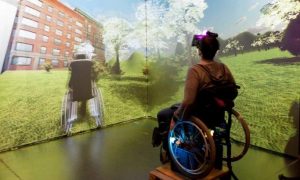
VR applications have been widely used in seniors settings and elder care homes to encourage cognitive well-being and physical activity.
By virtually placing game objects in a digital environment, the gaming platform encourages specific movements, postures, and exercise goals, using one of three basic configurations that can be individually customized.
VR applications have been widely used in seniors’ settings and elder care homes to encourage cognitive well-being and physical activity. Often used as an individual experience, some VR systems allow, say, four VR headset-wearing individuals to simultaneously connect with the same game and each other as a way to boost a sense of connectivity and community using technology.
The AGE-WELL competition is supported by sponsors including Aging2.0 Local I Halifax Chapter, BC Seniors Living Association, Bereskin & Parr LLP, CARP, IBM Canada Ltd., Impact Centre, Innovacorp, Innovation PEI, New Brunswick Innovation Foundation, Ontario Brain Institute, Spectrum Health Care, and YouAreUNLTD.
-30-

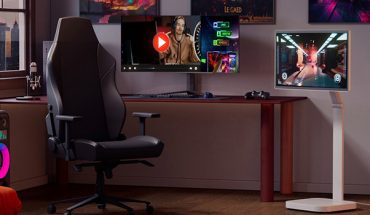
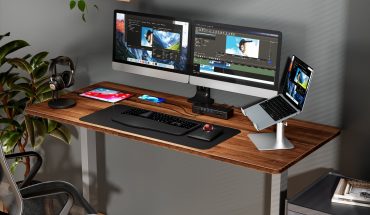

AGE-WELL has now announced funding for 22 new technology research projects, amounting to a total investment of more than $10-million over three years.
https://www.newswire.ca/news-releases/age-well-invests-over-10-million-in-22-new-research-projects-801338783.html